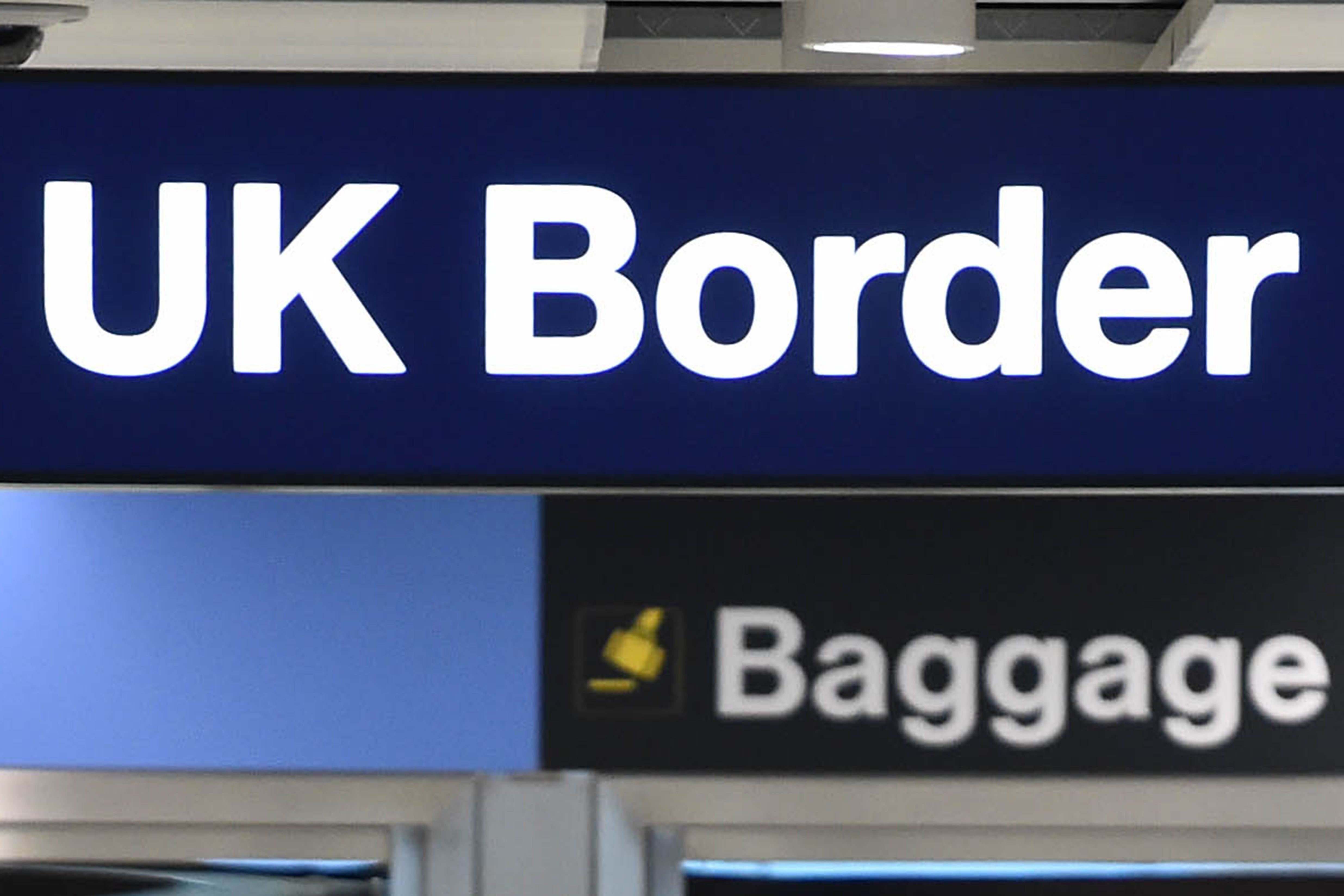Nearly 2.6 million migrants in UK without welfare safety net, research finds
Number of people on visas with no right to access welfare rises by over one million in two years
Your support helps us to tell the story
From reproductive rights to climate change to Big Tech, The Independent is on the ground when the story is developing. Whether it's investigating the financials of Elon Musk's pro-Trump PAC or producing our latest documentary, 'The A Word', which shines a light on the American women fighting for reproductive rights, we know how important it is to parse out the facts from the messaging.
At such a critical moment in US history, we need reporters on the ground. Your donation allows us to keep sending journalists to speak to both sides of the story.
The Independent is trusted by Americans across the entire political spectrum. And unlike many other quality news outlets, we choose not to lock Americans out of our reporting and analysis with paywalls. We believe quality journalism should be available to everyone, paid for by those who can afford it.
Your support makes all the difference.Almost 2.6 million migrants are in the UK on visas that deny them access to welfare support, according to new estimates that analyse the rise of student and work visas.
The number of people living in the UK who have no recourse to public funds, meaning they have no right to access welfare, has risen by over one million in just two years, research shows.
Net migration to the UK has been unusually high in the past two years, with the Office for National Statistics (ONS) putting it at 606,000 in 2022. This is up from 219,000 in 2019.
Research from the Migration Observatory at the University of Oxford has found that there has been a large increase in people who have the no recourse to public funds (NRPF) condition attached to their visa. This is usually attached to temporary visas used by students and workers.
Although those with NRPF should usually be on visas that help them support themselves, such as with work or study, if people lose their jobs or get dropped from their course the condition leaves them at risk of destitution.
Dr Marina Fernandez Reino, senior researcher at the Observatory, said: “The NRPF condition isn’t, in itself, a sign that someone faces poverty. Many of those with NRPF will be financially secure with no need for benefits or housing assistance. However, some are more vulnerable to economic insecurity, and the growth of the NRPF population means that the risk some people will fall into poverty is likely to be greater.”

Some people who arrive in the UK on care worker visas have been falling into destitution after their job offers have been withdrawn. The Gangmasters and Labour Abuse Authority have started investigating how the care worker visa system is being abused by criminals who bring workers to the UK on the pretence of real work, but then leave them without a job when they get here.
Some work visa holders who are able to find jobs may still be on relatively low wages, which would make their children eligible for in-work benefits if they did have access to public funds.
The Migration Observatory estimated that, at the end of 2022, the top nationalities with NRPF visas were Indian, some 665,000, Chinese, some 316,000, and Nigerian, some 268,000.
An estimated 147,000 Pakistanis and 121,000 Hong Kongers were also on UK visas but weren’t eligible for welfare support. Indian and Chinese people were the top nationality to be on student visas.
Indians also topped the list of those on work visas at some 360,200 people. This was significantly higher than the next most popular nationality – Nigerian – with 79,000 people.
The Home Office has been contacted for comment.
Subscribe to Independent Premium to bookmark this article
Want to bookmark your favourite articles and stories to read or reference later? Start your Independent Premium subscription today.

Join our commenting forum
Join thought-provoking conversations, follow other Independent readers and see their replies
Comments